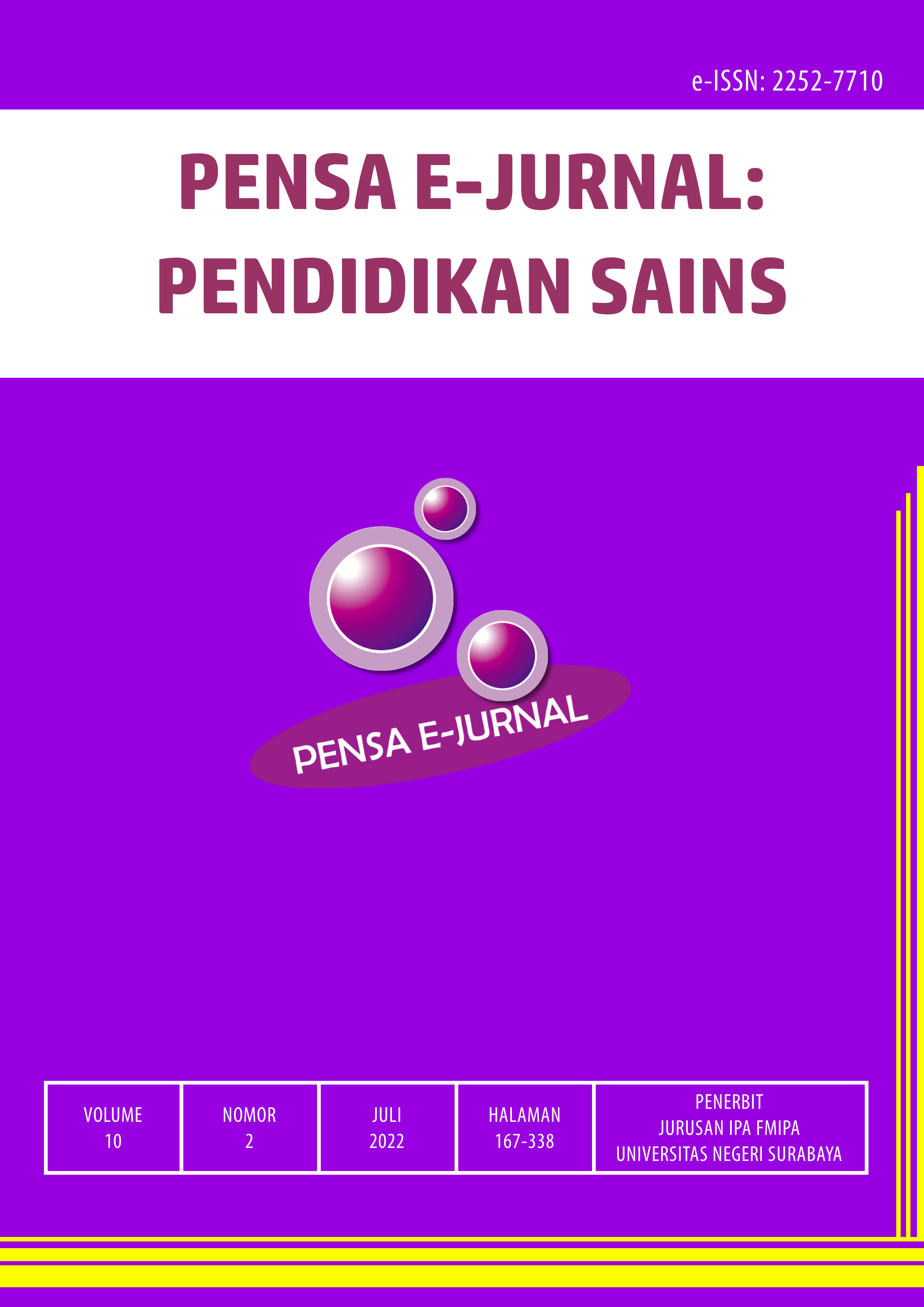PENGAPLIKASIAN CALL CARDS PADA MATERI SISTEM PENCERNAAN MANUSIA SEBAGAI UPAYA MENINGKATKAN HASIL BELAJAR SISWA SMP
DOI:
https://doi.org/10.26740/pensa.v10i2.44724Keywords:
Call cards, learning outcomesAbstract
The lack of role in the use of learning media that can be used in learning that is abstract to become more concrete is one of the reasons for carrying out this research. The purpose of this study was to determine the effect of the application of call cards on student learning outcomes in the material of the human digestive system. The research design used was One-Group Pre-test-Post-test Design. The research was conducted in class VIII C of SMP Negeri 1 Pacet with a total of 32 students. The data collection instruments in this study used observation sheets, tests, and questionnaires. Science learning outcomes data were analyzed using descriptive and inferential statistical analysis techniques, namely normality test, t-test, and description of N-gain. The results showed that the average percentage of student activity was 81.5% having an average of 61% with very good criteria. The acquisition of t-test, Sig. (2-tailed) <0.05, which means that there is a significant difference in student learning outcomes between before and after the call cards game is applied, and the average N-gain is 0.60, besides that students respond positive for 83.11% with a very good category for the application of call cards on the material of the human digestive system. Thus, call cards game media can be an alternative in improving science learning outcomes better.
Downloads
Downloads
Published
How to Cite
Issue
Section
 Abstract views: 281
,
Abstract views: 281
, PDF Downloads: 313
PDF Downloads: 313

















